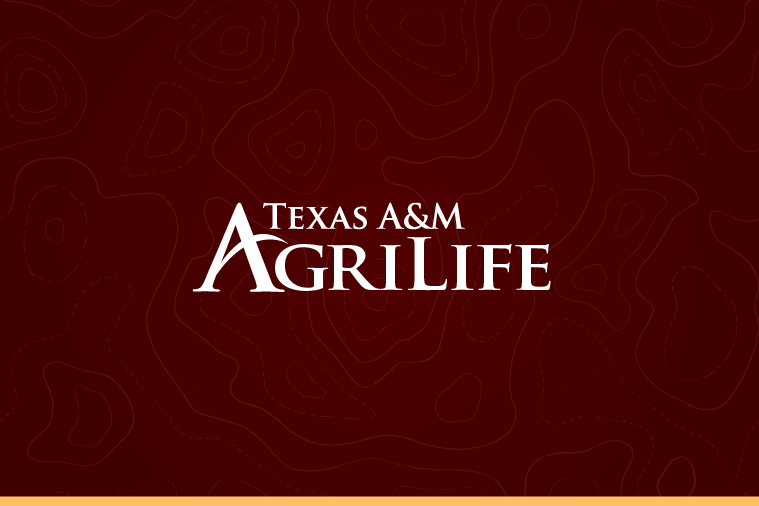Department of Biological and Agricultural Engineering faculty recognized
Faculty elected next association president, receive awards at international conference
Texas A&M AgriLife was well represented at the recent American Society of Agricultural and Biological Engineers, ASABE, annual international meeting in Houston.
Faculty members with the Texas A&M Department of Biological and Agricultural Engineering, BAEN, Texas A&M AgriLife Research and Texas A&M AgriLife Extension Service were recognized for their biological and agricultural engineering efforts to promote diversity and inclusivity among students and professionals and election to the office of ASABE president-elect.
Patricia Smith, Ph.D., BAEN department head and ASABE Fellow, congratulated this year’s recipients and praised them for their dedication to the discipline. Smith said their respective contributions and achievements show their dedication to designing and improving systems and technologies that better serve humanity and foster inclusivity among engineering students and professionals.
“These award winners have made incredible individual efforts that are deserving of the recognition they received from ASABE,” she said. “Their work collectively has far-reaching implications in water management through improved irrigation technologies, soil and water dynamics, food, water and energy security, air quality and the recognition of the contributions of biological and agricultural engineers from all backgrounds. I am very proud of the recipients and how they have represented the department, and the Texas A&M College of Agriculture and Life Sciences.”
President-elect
Dana Porter, P.E., of Lubbock, associate department head and AgriLife Extension program leader in BAEN, was named the 2022-2023 president-elect and will begin her one-year service as ASABE president following the 2023 annual meeting.
Porter, a 31-year ASABE member, has received many engineering awards, including the Professional Engineering Institute Professional Engineer of the Year Award. She has authored more than 60 refereed journal publications, numerous conference presentations and a variety of other publications, workshops and other products.
Her integrated applied research and AgriLife Extension program in agricultural water management and irrigation emphasizes technologies and management for water-limited conditions. She has acted as AgriLife Extension program leader and associate department head since 2015 and is involved in advising and advocating for engineering students, professionals, and programs.
Marek receives Heermann Award
Thomas Marek, senior research engineer and AgriLife Research Regents Fellow, Amarillo, received the Heermann Sprinkler Irrigation Award. The Heermann Award encourages and recognizes engineering excellence in the design, evaluation, operation or management of sprinkler irrigation systems that effectively conserve valuable resources.
Marek was recognized for his expertise in the design and operation of irrigation scheduling and systems, lysimeters, evapotranspiration, crop coefficients, data acquisition, electrical and electronic systems, regional irrigation and crop water demand, development operation of evapotranspiration networks, design of water wells, cropping practices, and research field operations and management.
According to the award nomination, Marek provides direction and engineering leadership to the AgriLife Research irrigation program at Amarillo, which includes developing, evaluating and integrating new production technologies into irrigated agriculture.
Moore receives IDEA award
Janie McClurkin Moore, Ph.D., assistant professor, received the inaugural Inclusion, Diversity, Equity and Access award, IDEA. This award recognizes outstanding contributions that significantly improve inclusion, diversity equity and access for under-represented groups that have led the Society in fostering a welcoming and safe community for all members. The award is endowed by Robert and Yvonne Gustafson.
Moore has led efforts to improve diversity and inclusion in agricultural and biological engineering throughout her career. She organized outreach efforts to bring students from Prairie View A&M University’s National Society of Black Engineering to pursue graduate degrees at Texas A&M University.
Moore has also mentored undergraduate summer researchers from underrepresented minority groups and pioneered the first ASABE networking group dedicated to black, indigenous and people of color, which fosters interactions and professional development for professionals and students.
Mohtar receives ADS/Hancor award
Rabi Mohtar, Ph.D., professor and ASABE Fellow, received the 2022 AdvancedDrainage System/Hancor Soil and Water Engineering Award for providing exceptional leadership toward food and water security through science, policy, water-energy-food nexus analytical tools and multi-scale hydrologic processes, according to ASABE.
Mohtar is an expert in the theory of hydro-structural pedology and leads a pedostructure lab, which characterizes soil hydrostructural properties by measuring soil shrinkage/swelling, water potential and hydraulic conductivity. He made key contributions in modeling water and land-use systems and developed a global perspective on challenges surrounding the water-food relationship, according to the nomination.
He has also developed modeling platforms to evaluate environmental impacts of land use and water management. These tools allow scientists to analyze and assess environmental nexuses for a wide range of applications from research and policy inputs to academia, technology production and entrepreneurship.
Zahid receives concept award
Azlan Zahid, Ph.D., assistant professor with AgriLife Research at the Texas A&M AgriLife Research and Extension Center at Dallas, was honored with the Rain Bird Engineering Concept of the Year Award. Zahid was part of a team including Long He, Ph.D., Paul Heinemann, Ph.D., and Dana Choi, Ph.D., at Penn State University.
The concept that garnered the award was to produce an automated pruning device that could be applied in agriculture settings, like an apple orchard, to reduce labor costs. The concept was built, run through simulated tests, field tested and has undergone further improvements.
With additional development, the Robotic Pruning System with Multiple Degrees of Freedom, Pruning and End-Effector could provide automated branch pruning in tree canopy environments.



